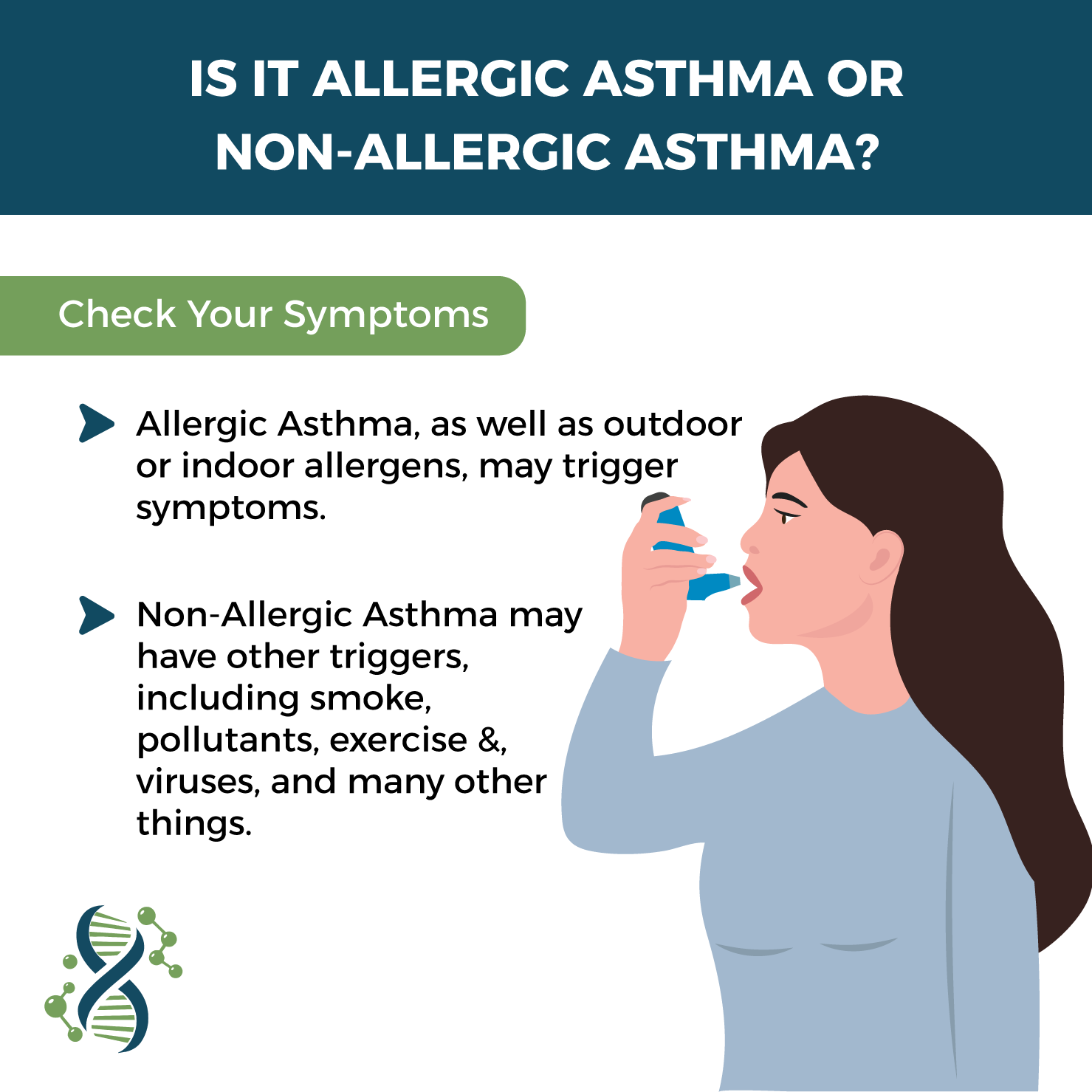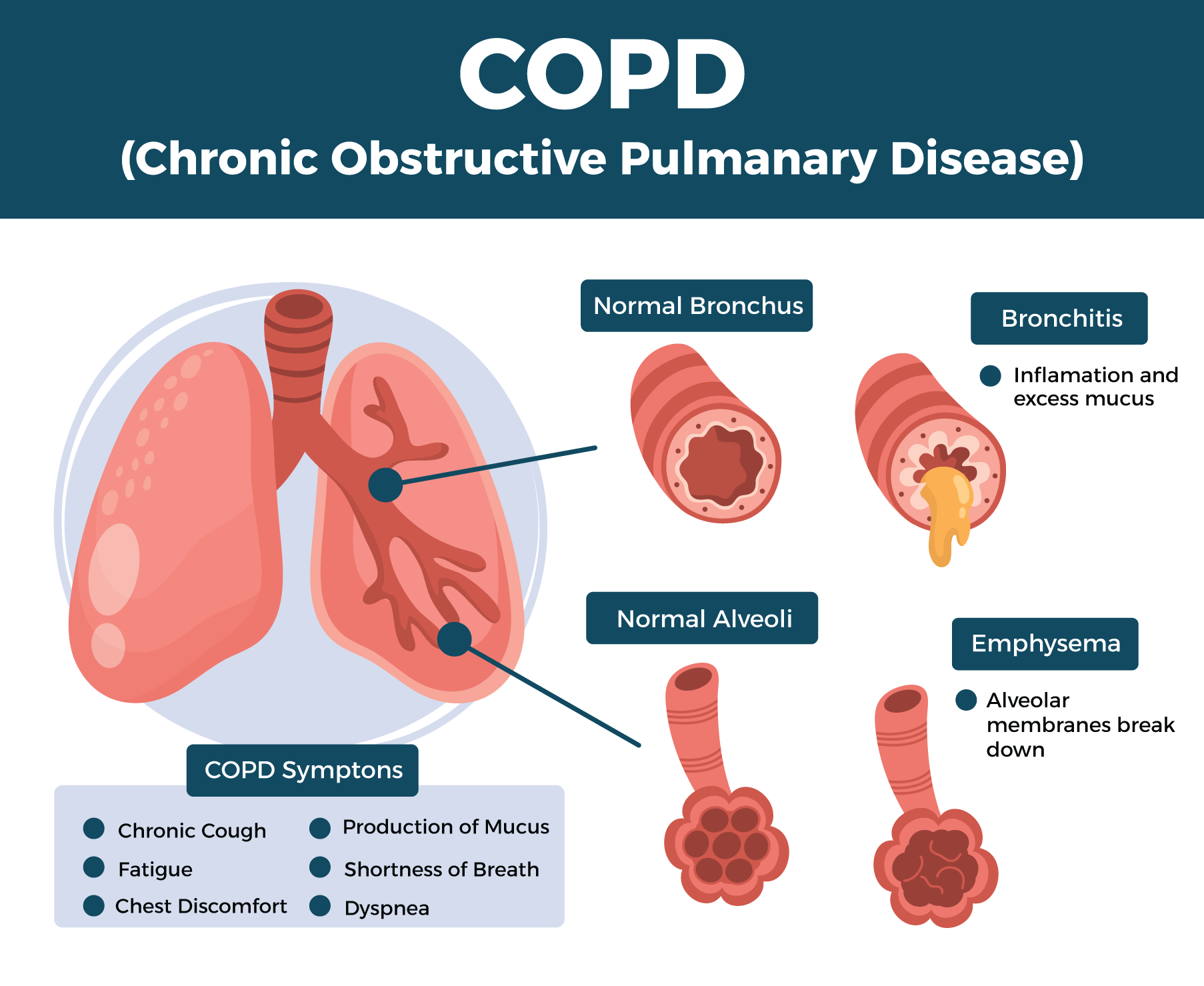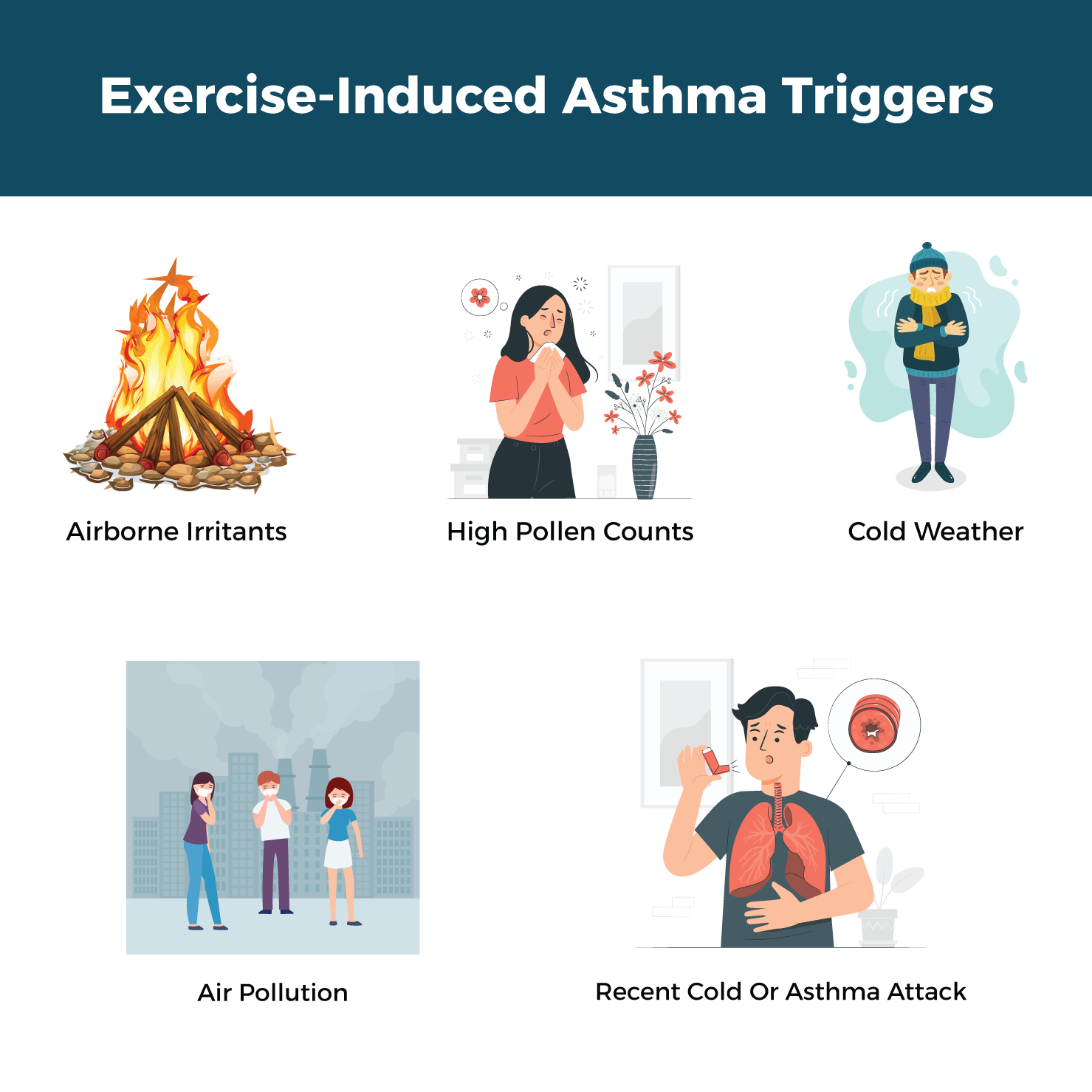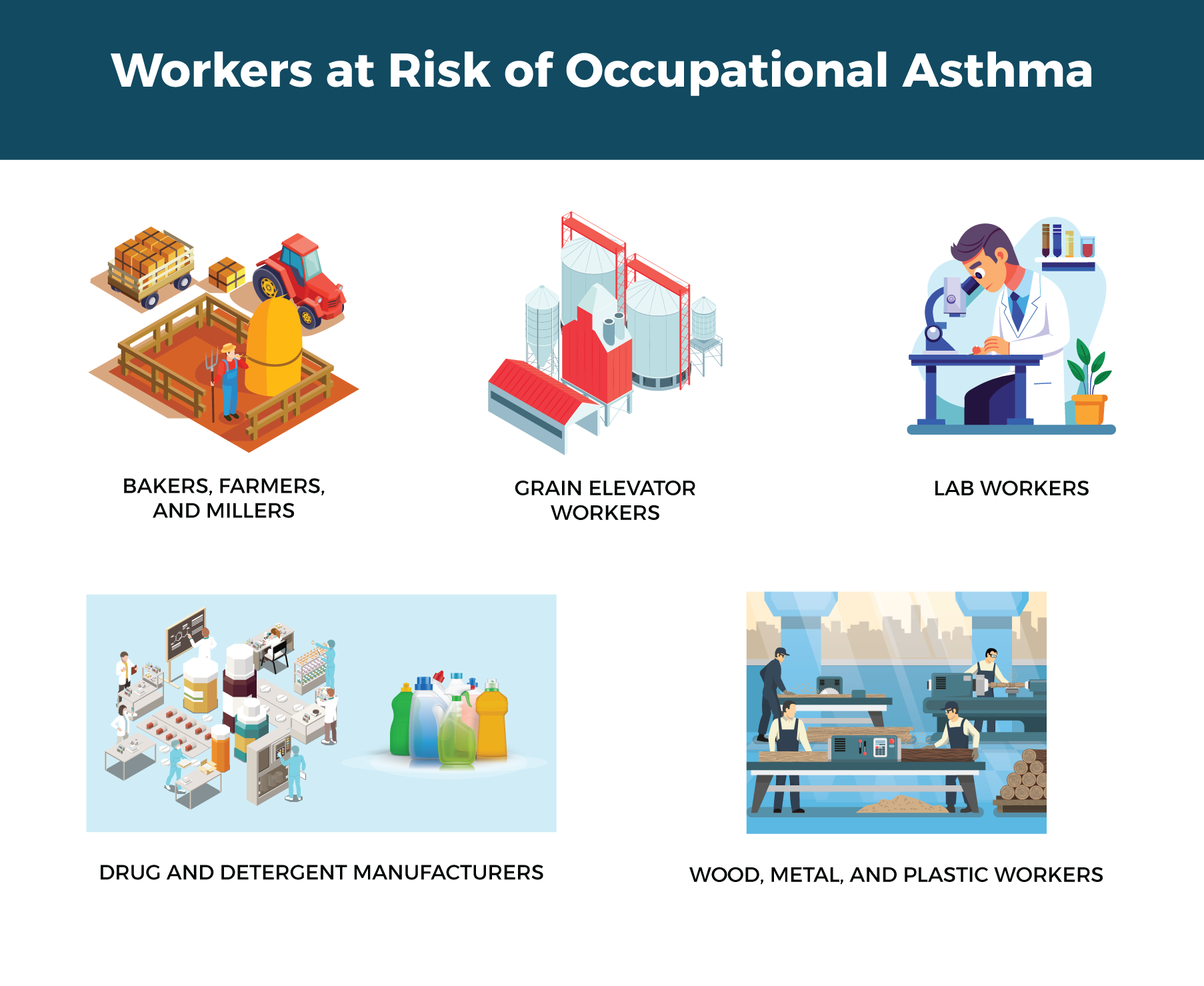Asthma
Asthma causes inflammation of the airways, resulting in a chronic lung condition. In 2022, a study revealed that India recorded 34.3 million cases of asthma, making it 13.09% of all global asthma cases. And that’s just 20% of cases that do get diagnosed, as experts claim that 80% of asthma cases in India go undiagnosed!
Asthma could be the reason you’re struggling with a constant cough, tightness in your chest, or troubled breathing. While there are many causes of Asthma, your genetic predisposition can put you at a higher risk of developing it and also determine its severity.
Types of Inherited Asthma
Asthma manifests in different forms, and each type has varying triggers and management needs. Genes could play a role in most of these types. With the Ancestry India DNA test insights on your genetic pattern, you get to know if you or any of your family members are prone to inherited types of Asthma, such as:
Asthma manifests in different forms, and each type has varying triggers and management needs. Genes could play a role in most of these types. With the Ancestry India DNA test insights on your genetic pattern, you get to know if you or any of your family members are prone to inherited types of Asthma, such as
How Does Genetics Play A Role In Asthma?
How Does Genetics Play A Role In Asthma?
While there are various causes of asthma, a 2014 study indicated that genetics may play a significant role, accounting for up to 70% of the development of asthma. Some researchers even describe the disease as “highly heritable.”
The good news is that you won’t necessarily develop symptoms just
because your genes show a tendency towards it. However, it’s good to
know your genetic predisposition, as your genes have a 25% chance
of passing it on to the next generation. If both parents have asthma,
the risk of passing it on rises by 50%.
Unlike other diseases that could be inherited, there isn’t one specific
gene causing asthma. Instead, extensive genetic research identifies a
number of genes and gene complexes that significantly contribute to asthma play, such as:
- DPP10
- GRPA
- SPINK5
These genes affect airway function and immune responses to environmental allergens, increasing the risk of developing asthma. The Ancestry India DNA will provide a detailed report on the presence or absence of the asthma-causing genes, allowing you to strategize an asthma management plan if needed.
While there are many different causes of asthma, a 2014 study showed your genes can play a 70% role in developing asthma. Some researchers even go as far as describing the disease as “highly heritable.”
The good news is that you won’t necessarily develop symptoms just because your genes show a tendency towards it. However, it’s good to know your genetic predisposition, as your genes have a 25% chance of passing it on to the next generation. If both parents have asthma, the risk of passing it on rises by 50%.
Unlike other diseases that could be inherited, there isn’t one specific gene causing asthma. Instead, extensive genetic research identifies a number of genes and gene complexes that significantly contribute to asthma play, such as:
- DPP10
- GRPA
- SPINK5
These genes affect airway function and immune responses to environmental allergens, increasing the risk of developing asthma. The Ancestry India DNA will provide a detailed report on the presence or absence of the asthma-causing genes, allowing you to strategize an asthma management plan if needed.
Recognizing If You Have Asthma

If you have parents or siblings suffering from asthma, you’re more likely to develop symptoms of inherited asthma, such as:
- Shortness of breath
- Chest tightness
- Wheezing
- Coughing
Young boys often develop these symptoms earlier, and girls tend to notice them after puberty. This may or may not be due to boys’ smaller airways compared to girls. The symptoms’ intensity and frequency may vary depending on exposure to the allergen triggers.
If you’re facing exacerbated symptoms or severe asthma attacks, consult your doctor right away for proper management of the condition.
Getting a genetic test can help you understand your risks of developing asthma. This may help you recognize symptoms that might go unnoticed, which can help in proper diagnosis and treatment.
While there’s no cure for hereditary asthma, you can undertake certain lifestyle measures, which, combined with medication, can help manage the condition. Asthma inhalers are a common treatment option to relieve or prevent symptoms. In addition to inhalers, doctors may prescribe other medicines to help control your symptoms. You may make practical lifestyle changes, such as:
- Regular exercising
- Healthy diet
- Stress management
- Quitting smoking habits
- Identification and avoidance of triggers
- Keeping the house clean from dust and mold
- Keeping mouth and nose covered in winter
Breathe Easy: Find Out If Your Genes Are Affecting Your Respiratory Health
FAQ'S
The most common type of genetic asthma is allergic asthma. The risk of developing symptoms due to allergens in the atmosphere increases with certain genes. Some genes may also contribute to non-allergic asthma, which is less prevalent but often more severe and develops in later life.
There is currently no cure for asthma, whether it is a genetic condition or asthma developed by breathing in toxic fumes, dust, or other pollutants. However, you may control and alleviate your symptoms with the help of a variety of helpful drugs and lifestyle modifications.
It's important to avoid the controllable risk factors to keep asthma symptoms at bay. You may not be able to alter your genetic makeup or gender, but you may control your asthma symptoms by avoiding triggers like smoking, breathing in dirty air, and being overweight.
Genetic asthma can be passed on to your children; however, they’re not at 100% risk. There’s only a 25% chance of your child inheriting asthma from you. If you and your partner both have asthma, these chances increase by 50%.




